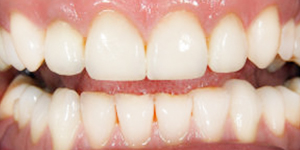
A dental crown is a fixed prosthetic device that people can opt to get to address different dental problems. They are different, however, from other common dental devices such as dentures or Invisalign® aligners which you can remove and clean daily; crowns are cemented onto the teeth or an existing implant. They can only be installed or removed by a qualified dentist.
Dental crowns are recommended for patients suffering from a number of conditions. They are ideal for protecting a worn or decayed tooth, for example, so that further breakage can be prevented. A cracked tooth may also need support from a dental crown that will effectively hold it together. Crowns can also be used to cover dental implants or teeth that are discolored or misshapen, and to hold dental bridges in place. Even young children can benefit from the use of dental crowns, like when teeth are so decayed that they are unable to hold a filling or when a dental crown is the only way to protect teeth of a child who is at high risk for tooth decay (because he or she has difficulty or is unable to observe proper daily dental hygiene).
What Can a Fort Lauderdale Dentist Tell You About Dental Crowns?
A Fort Lauderdale dentist can recommend the right type of crown to suit your specific oral condition. He or she can explain to you the different types of crowns that are available and the various materials that they can be made from. Here is a description of the most common types:
1. Stainless steel crowns are ideal for use among children; a stainless steel crown commonly covers an entire primary tooth to prevent it from decay, and when this tooth comes out (to make way for the permanent tooth), the crown simply comes out with it. They are the more cost-effective solutions because they do not require multiple visits to the dentist for installation.
2. Metal crowns are generally the type that is able to resist wear and tear the most among all crown types and rarely chip or break because they can withstand the constant biting and chewing activities of the teeth. They can be made with gold alloy, palladium, chromium or nickel, for example. The main disadvantage of metal crowns, however, is their highly visible metallic color, which is why this crown is best used on molars which are out of sight of other people.
3. Porcelain-fused-to-metal crowns are the second most natural-looking crowns; they can be color-matched to the adjacent teeth. Take note, however, that the metal underneath the porcelain can still be visible as a dark line, usually along the gum line.
4. All-porcelain or all-ceramic crowns offer the best natural color match properties among all the crown types and are thus the most suited for use in front teeth. They are also perfect for dental patients with metal allergies. One drawback, however, is that they are not as strong as porcelain-fused-to-metal crowns.

























